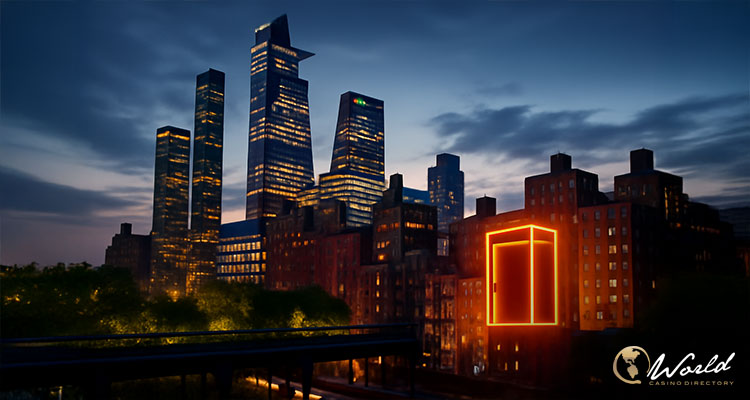A major proposal to build a $12 billion casino complex in Manhattan’s Hudson Yards near the High Line has been officially abandoned, following strong resistance from local residents, elected officials, and community groups. Wynn Resorts, partnered with Related Companies, announced on Monday, May 19, that it will no longer pursue a gaming license in New York City, citing “persistent opposition” and shifting investment priorities.
Shift toward housing and community priorities:
The casino operator stated that after thorough consideration during the city’s rezoning process, it found better uses for its capital that would benefit shareholders more, such as investing in current and upcoming developments and executing stock buybacks. According to New York Post, despite plans to employ up to 5,000 New Yorkers through the project, Wynn acknowledged that it — along with any other potential casino operator — would face years of continuous pushback.
This withdrawal marks a pivotal moment in the ongoing saga surrounding the Western Rail Yards, originally slated for residential use with public amenities since 2009. Last year, Wynn and Related had proposed rezoning the area to allow for commercial development anchored by a casino, but the plan faced backlash from Manhattan Community Board 4, Borough President Mark Levine, and City Councilmember Erik Bottcher.
Councilmember Bottcher, representing the area, has long opposed a casino on the West Side. He emphasized the need for community consensus in any such large-scale project and confirmed he would not support the casino element of the proposal. Instead, he backs Related Companies’ revised plan focusing on housing and open space. The updated proposal includes up to 4,000 residential units—an increase from prior plans—with a minimum of 400 affordable rental apartments. The development would also expand public green space by an acre, totaling 6.6 acres, featuring a new lawn adjacent to the High Line, a children’s playscape, and a dog run.
The housing project is expected to generate over 35,000 union construction jobs and more than $2 billion in revenue for the Metropolitan Transportation Authority, according to Related’s CEO Jeff Blau. The financing model will mirror past Hudson Yards projects, relying on a payment-in-lieu-of-taxes (PILOT) arrangement to fund infrastructure and open spaces.
While Friends of the High Line, a key community group, remains cautious about the details, its leadership acknowledges positive developments in the revised plan addressing previous concerns about the High Line’s impact and affordable housing commitments.
Political and community opposition key to withdrawal:
The casino bid faced significant resistance from multiple fronts. Local community boards and political representatives, including Assemblyman Tony Simone and Manhattan Borough President Mark Levine, opposed the casino’s inclusion. Activist groups like Friends of the High Line and No Times Square Casino mobilized grassroots efforts against the plan. City Councilmember Bottcher noted, “This casino did not meet the high bar of community support that a project like this requires.”
Wynn Resorts is not alone in pulling back from New York casino ambitions this year. Earlier in 2025, Las Vegas Sands withdrew its bid for a Nassau Coliseum casino, also citing industry challenges such as competition from online gambling legalization and a politicized, expensive licensing process. Meanwhile, other bidders continue to vie for state gaming licenses.
Several competing casino developments remain under consideration across New York City and its boroughs. Steve Cohen, owner of the New York Mets, is partnered with Hard Rock International on an $8 billion “Metropolitan Park” casino near Citi Field in Queens, awaiting state Senate approval for rezoning parkland to commercial use. Meanwhile, Caesars Entertainment, SL Green, and Jay-Z’s Roc Nation are proposing a casino at 1515 Broadway in Times Square, a plan also facing opposition from local business groups and the Broadway League.
Other proposals include Larry Silverstein’s bid for a mixed-use complex called The Avenir on Manhattan’s Far West Side, Bally’s proposed casino in the Bronx, a “Coney” casino near Coney Island in Brooklyn, and expansions of existing operations like Genting’s Resorts World and MGM Resorts in Yonkers.
Casino license applications are due to the New York State Gaming Commission by June 27, with community advisory councils set to vote on local bids by September 30. The commission plans to award up to three licenses by the end of the year, each license requiring a $500 million fee.



